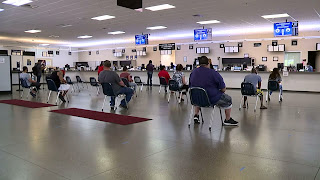When I sit down to consume art (as well as a tub of wonderfully organic popcorn in an enormous microwave-safe plastic bowl) the first I do is not enjoy what’s in front of me. Instead, I notice what’s wrong, picking out errors and offenses like burnt kernels stuck to the roof my mouth. Those with inside knowledge of a subject are able to see through the dangerous imagination of an artist, immediately catching what’s wrong.
You may watch a movie about a literary agent, enjoying it for its strong dialogue and sultry love scenes. What you may not realize is that a sequence where the hero agent puts pen directly to page, scribbling notes all over the book of a prospective client is wildly inaccurate. They’d burn a book before defacing it. Agents show respect, adding tiny, barely legible comments on post-it notes, never affecting the book’s structural integrity with harshness of a ballpoint. You may adore an oil painting by some mustachioed Frenchman with a bunch of oranges resting on a great big farm table. But did you know that they don’t have oranges in France? They didn’t even have the color orange until 1910, believing the sun itself was merely yellow - just another cowardly star high up in the sky.
Is there a foolproof way of avoiding disasters like this? We don’t want to live in a world where submarine captains are seen eating peas or dancing to polka when experts and insiders know the truth is much different.
The solution is simple. There should be a DMV for creative types. A place (with lots of tough-to-scrub linoleum and scratched plexiglass) where people can go to prove they understand subjects before expressing themselves through art. There, along a bumpy service road, artists would gather in the hopes of receiving a highly sought-after creative license. Each state would have a modest allotment, divvied up to the famous and infamous alike. And unlike drivers who take a test at 16 years of age only to cruise unfettered for the rest of their lives, creative folks will be forced to renew their license every five years. Plus, it can be revoked at any time, for any reason. What's the point of having a tangled bureaucracy if you can't enforce rules capriciously?
Think of the good it would do. CLs would prevent terrible podcasts, horrendous comedy specials, awful books (and some good ones, too). But if the military can tolerate collateral damage, why shouldn’t the arts? For too long, creativity meant someone alone in a room fantasizing to themselves and pushing the limits of good taste. The test won't be too bad either, with most of the questions about TikTok. However, your score isn't as important as the personal whims of your proctor. With a Department of Creativity, artists will have to wait in small rooms for the honor of getting five minutes with meet some guy named Sal. With his feet up on the desk and his mind elsewhere, he alone decides their creative fate. And I can’t see many downsides to this.

No comments:
Post a Comment